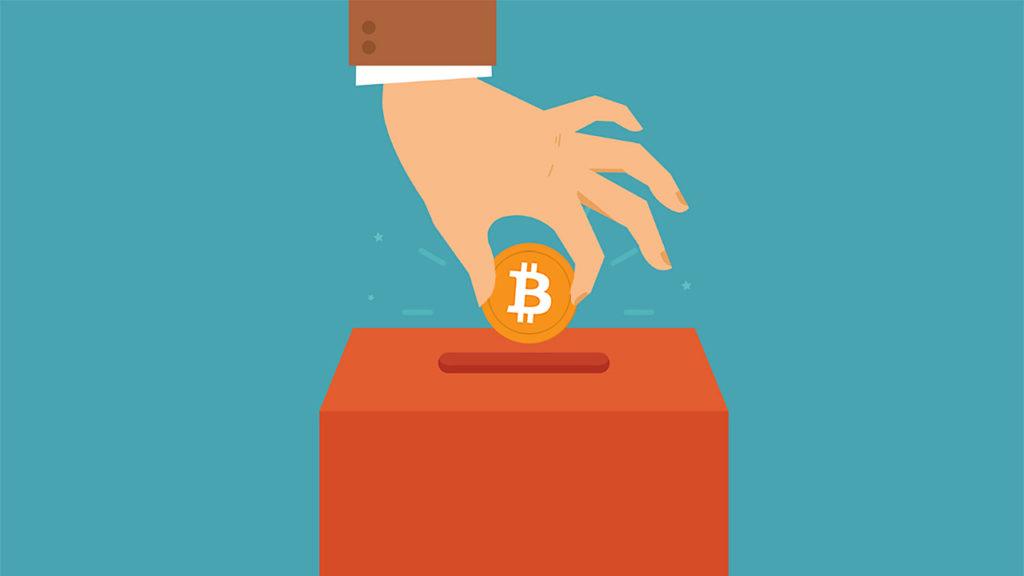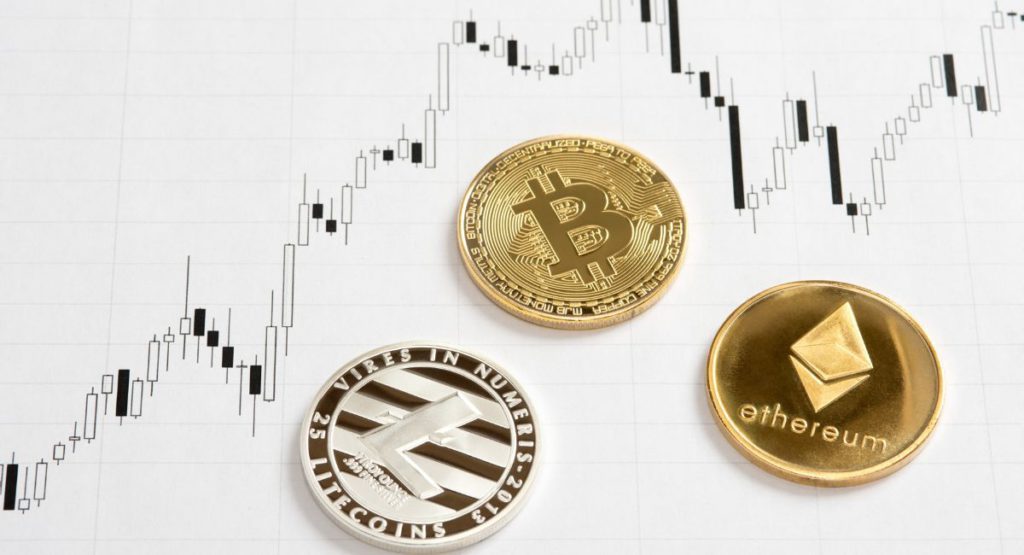Your Comprehensive Guide To Crypto Payment Gateways
In recent years, the world of digital finance has witnessed a revolutionary shift with the rise of cryptocurrencies. Alongside this shift, various technologies and services have emerged to facilitate the seamless integration of cryptocurrencies into everyday transactions. One such pivotal development is the advent of crypto payment gateways. In this article, we’ll delve into the intricacies of crypto payment gateways, understanding their significance, functionality, benefits, and potential drawbacks.
Understanding Crypto Payment Gateways

A crypto payment gateway serves as a bridge between cryptocurrency transactions and merchants’ websites, enabling them to accept digital assets as a form of payment. It functions much like traditional payment gateways, facilitating the secure and efficient transfer of funds between the customer and the merchant. However, instead of traditional currencies, these gateways facilitate transactions involving cryptocurrencies like Bitcoin, Ethereum, and others.
A crypto payment gateway serves as a conduit, enabling businesses and individuals to transact using cryptocurrencies as a medium of exchange. Similar to conventional payment gateways, which facilitate credit card or digital wallet payments, crypto payment gateways facilitate seamless and secure crypto transactions. They empower merchants to accept a variety of cryptocurrencies, opening doors to a broader customer base while embracing the ethos of decentralization.
How Crypto Payment Gateways Work

Crypto payment gateways have become a cornerstone in the adoption of cryptocurrencies for everyday transactions. These gateways facilitate the smooth integration of cryptocurrencies into online commerce, offering a secure and efficient way for businesses to accept digital assets as payment. To understand how crypto payment gateways work, let’s delve into the process step by step.
1. Customer Initiation: The process begins when a customer decides to make a purchase on a merchant’s website using cryptocurrencies. They select their desired products or services and proceed to the checkout page.
2. Merchant’s Integration: Before the transaction can take place, the merchant needs to integrate a crypto payment gateway into their website. This integration involves incorporating the necessary code or plugins provided by the chosen payment gateway service.
3. Transaction Request: Upon checkout, the customer selects the option to pay with cryptocurrencies. This action triggers a transaction request that is sent to the crypto payment gateway.
4. Real-Time Conversion: The crypto payment gateway plays a crucial role in converting the transaction amount from the merchant’s native currency (e.g., US Dollars) to the equivalent cryptocurrency. This conversion is based on real-time exchange rates fetched from various sources.
5. Generation of Payment Address: The crypto payment gateway generates a unique cryptocurrency payment address for the specific transaction. This address is a long string of alphanumeric characters and acts as a destination for the customer to send the required cryptocurrency.
6. Customer’s Payment: The customer opens their cryptocurrency wallet and enters the provided payment address or scans the QR code associated with the transaction. They initiate the payment by sending the required amount of cryptocurrency to the provided address.
7. Transaction Broadcast: Once the customer initiates the payment, the transaction is broadcasted to the respective blockchain network of the chosen cryptocurrency. This transaction is then included in a block by network miners.
8. Blockchain Verification: Miners verify the validity of the transaction by ensuring that the sender has the required cryptocurrency balance and that the transaction adheres to network rules. Once verified, the transaction is added to the blockchain’s public ledger.
9. Payment Confirmation: The crypto payment gateway monitors the blockchain for confirmations. As the transaction gains confirmations (usually a set number of blocks added to the blockchain), the gateway considers the payment as successful and notifies the merchant.
10. Merchant Notification: Upon receiving payment confirmation from the gateway, the merchant is informed that the transaction was successful. At this point, the merchant can proceed to fulfill the order, provide access to digital goods, or offer services to the customer.
11. Transaction Settlement: Depending on the merchant’s preference, the received cryptocurrency can be settled in different ways. Some merchants may choose to convert the cryptocurrency to their local currency, while others might opt to retain the digital assets.
12. Payment Records: The crypto payment gateway maintains a record of all transactions, including payment details, timestamps, and confirmations. This record-keeping is essential for both merchants and customers for future reference.
In essence, crypto payment gateways act as intermediaries that streamline the process of accepting cryptocurrencies as payment. By handling the technical complexities of currency conversion, blockchain interaction, and transaction monitoring, these gateways enable businesses to focus on providing excellent products and services while embracing the benefits of the digital currency revolution.
Very Important Update: For those who have been finding it difficult with the payment gateways on the website and requesting a Crypto payment option
We’ve now added a crypto payment option for your convenience.
You can easily acquire the “Bull-Run Secrets” Crash Course alongside… pic.twitter.com/TL4TahfnLK
— HouseOfWealth LLC (@houseofwealth_) August 11, 2023
Advantages of Crypto Payment Gateways:

- Global Reach: Cryptocurrencies operate on a decentralized network, allowing merchants to accept payments from customers worldwide without concerns about currency conversion or cross-border transaction fees.
- Reduced Fees: Crypto transactions often have lower fees compared to traditional payment methods, saving both merchants and customers money in transaction costs.
- Security: Blockchain technology ensures secure and tamper-resistant transactions. The cryptographic nature of cryptocurrencies makes them inherently resistant to fraud and chargebacks.
- Faster Settlement: Cryptocurrency transactions are processed more quickly compared to traditional banking systems, leading to faster order fulfillment and access to funds for merchants.
- Accessibility: Crypto payment gateways provide opportunities for customers who may not have access to traditional banking services to participate in online transactions.
- Privacy: Cryptocurrency transactions can offer a level of anonymity, allowing customers to make purchases without revealing sensitive personal information.
- Reduced Middlemen: With traditional payment methods, transactions often involve multiple intermediaries. Crypto payment gateways simplify this process, reducing the number of intermediaries involved.
- Innovation: By adopting crypto payment gateways, businesses position themselves as forward-thinking and open to innovative technologies, attracting tech-savvy customers.
- Borderless Transactions: Cryptocurrencies enable seamless cross-border transactions, eliminating the need for currency conversion and reducing the time and costs associated with international payments.
- Marketing and Branding: Accepting cryptocurrencies as payment can create a unique selling point for businesses, potentially attracting a new customer base interested in using digital assets for transactions.
Also, read – Rise of Crypto Payments In Startups: Is Crypto The Future?
Challenges and Considerations

- Volatility: The value of cryptocurrencies can be highly volatile, leading to potential risks for merchants who may receive payments that fluctuate significantly in value before conversion.
- Integration Complexity: Integrating a crypto payment gateway requires technical expertise, which can be a barrier for smaller businesses or those without sufficient IT resources.
- Regulatory Uncertainty: The regulatory environment for cryptocurrencies varies globally, with changing regulations impacting the legality and acceptance of crypto payments.
- User Adoption: While the popularity of cryptocurrencies is growing, not all customers are familiar with using them for transactions, potentially limiting adoption.
- Customer Education: Businesses need to educate customers about the benefits and process of using cryptocurrencies for payments to encourage adoption and alleviate concerns.
- Lack of Reversibility: Cryptocurrency transactions are irreversible once confirmed on the blockchain. This can be advantageous for merchants but may pose challenges in case of disputes.
- Custodial vs. Non-Custodial: Businesses must choose between custodial and non-custodial payment gateways, each with their own implications for security, control, and compliance.
- Technical Risks: Crypto payment gateways rely on technology, and any technical issues or vulnerabilities could lead to disruptions in the payment process or security breaches.
- Customer Support: Handling customer inquiries and issues related to crypto payments might require specialized support, as customers may have unique concerns compared to traditional payment methods.
- Exchange Rate Risks: When converting cryptocurrencies to fiat currency, merchants are exposed to exchange rate fluctuations, potentially impacting the value of payments received.
Balancing these advantages and challenges is crucial when considering the adoption of crypto payment gateways. Careful planning, risk assessment, and staying updated on industry trends are essential to navigate the evolving landscape of digital payments effectively.
Conclusion
Crypto payment gateways represent a critical intersection between traditional financial systems and the emerging world of cryptocurrencies. By providing a secure, efficient, and global means of transacting with digital assets, these gateways contribute to the broader adoption of cryptocurrencies in mainstream commerce. As technology advances and the understanding of cryptocurrencies deepens, crypto payment gateways are poised to reshape the way we transact, blurring the lines between the physical and digital economies.
Stay informed with daily updates from Blockchain Magazine on Google News. Click here to follow us and mark as favorite: [Blockchain Magazine on Google News].
Get Blockchain Insights In Inbox
Stay ahead of the curve with expert analysis and market updates.
latest from tech
Disclaimer: Any post shared by a third-party agency are sponsored and Blockchain Magazine has no views on any such posts. The views and opinions expressed in this post are those of the clients and do not necessarily reflect the official policy or position of Blockchain Magazine. The information provided in this post is for informational purposes only and should not be considered as financial, investment, or professional advice. Blockchain Magazine does not endorse or promote any specific products, services, or companies mentioned in this posts. Readers are encouraged to conduct their own research and consult with a qualified professional before making any financial decisions. The featured image used is just a creative depiction of the title and it does not intend to hurt sentiments of any person or institution. If it hurts anyone sentiments, please do not hesitate to reach out to Blockchain Magazine.

 Bitcoin
Bitcoin  Ethereum
Ethereum  XRP
XRP  Tether
Tether  Solana
Solana  USDC
USDC  Dogecoin
Dogecoin  Cardano
Cardano  Lido Staked Ether
Lido Staked Ether  TRON
TRON  Wrapped Bitcoin
Wrapped Bitcoin  Wrapped stETH
Wrapped stETH  Chainlink
Chainlink  Avalanche
Avalanche  Sui
Sui  Stellar
Stellar  Litecoin
Litecoin  Toncoin
Toncoin  Shiba Inu
Shiba Inu  Hedera
Hedera  LEO Token
LEO Token  USDS
USDS  Hyperliquid
Hyperliquid  WETH
WETH  Polkadot
Polkadot  MANTRA
MANTRA  Bitcoin Cash
Bitcoin Cash  Bitget Token
Bitget Token  Ethena USDe
Ethena USDe  Wrapped eETH
Wrapped eETH  Uniswap
Uniswap  Monero
Monero  NEAR Protocol
NEAR Protocol  Pepe
Pepe  WhiteBIT Coin
WhiteBIT Coin  Aave
Aave  Ondo
Ondo  Bittensor
Bittensor  Aptos
Aptos  Internet Computer
Internet Computer  Dai
Dai  Official Trump
Official Trump  Mantle
Mantle  Ethereum Classic
Ethereum Classic  Tokenize Xchange
Tokenize Xchange  OKB
OKB  Gate
Gate  sUSDS
sUSDS  Coinbase Wrapped BTC
Coinbase Wrapped BTC 



